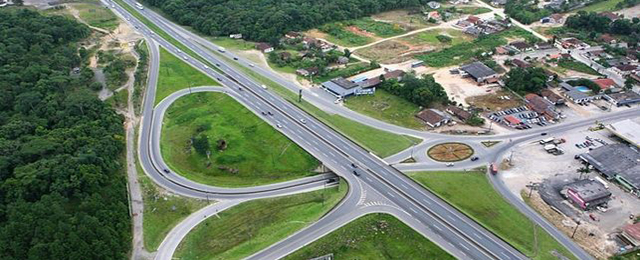“When any country considers an infrastructure they firstly think about Spanish civil engineering, and Spanish companies,” Minister of Development Ana Pastor said some days ago, in a clear attempt to promote Brand Spain.
Among them, Abertis, the world’s largest toll road operator is in charge of the management of more than 7,300 kilometres of motorways.
Last year the company held in Rio de Janeiro its first Investor Day as global leading company after buying and consolidating new concessions in Brazil and Chile. On Tuesday, Abertis held its General Shareholders Meeting and brought good news for private investors as well as positive expectations for the Spanish recovery.
However, the firm also had to respond questions about the bankruptcy that a number of Spanish toll roads currently face. Abertis is major stakeholder in some of these toll motorway concessions, mostly around Madrid.
In the present context of recession, any sign of recovery in any sector is more than welcome. The freeway management company’s CEO Francisco Reynés announced 2014’s road traffic figures increased for the first time since 2008. Also France, where Abertis runs 22.5% of its overall toll road network, had a 3.4% upturn. These data walk parallel to those of Spain’s GDP’s growth in 4Q13 and the euro zone’s slow taking-off.
The increasing country’s corporate deleveraging process reflects on the firm’s data as well, having reduced its debt by near €1 bn, thus improving its rating outlook by Standard & Poor’s.
In terms of investment, the Spanish company forecasts to spend more than €1.3 bn in year 2014. According to the World Economic Forum, there is a gap of 1 trillion dollar in global spending on basic infrastructures of transport, power, water and communications. Abertis’contribution seems just a drop in the ocean, but investments keep on.
The other side of Spain’s economy recovery, however, continues to be bankruptcies, public or private, and therefore the need of sectors’ bails-out. The most recent collapse affects a number of toll roads (9 out of 32) built in the past 15 years, mostly around Madrid. Abertis participates as a major stakeholder in some of these financial troubled motorways: 30% of so- called branch R-2 (connecting Madrid and Guadalajara), and also 35% of those R-3 (Madrid-Arganda) and R-5 (Madrid-Navalcarnero).
Spain’s government proposed to create a sort of bad bank of toll roads going bakrupt. The state-owned entity would include the nine consortiums, with a haircut of 50% over the total debt these have contracted to banking sector reaching around €3.8.
In the press conference previous to the General Meeting, Abertis’ chairman Salvador Alemany said the motorways’ bankrupcy situation was not a surprise.
“It was clear that there would be problems from the moment road traffic decreased due to crisis effects and land expropriations impacted on final budget of projects.”
As negotiations are still over, Mr. Alemany’s words regarding an eventual rescue of troubled toll roads appear to anticipate Abertis would accept the deal as the best option. He said the company’s position is not “belligerent” and underlined the financial responsibility of the state. The terms of the contract “foresee since the beginning that the government would recover the ownership of motorways”, Abertis’ chairman said. Furthermore, he assured “this state pecuniary responsibility” represents a guarantee for the banks to finance infrastructures’ projects.
Despite controversies, these roads’ bail-out would not the first in Spain’s history. Thirty years ago, the country’s government took the losses of six collapsed freeways which were, as they are now, short of traffic. A first “bad bank” of motorways called ENA was created then. It went privatized in 2003 thanks to some of the companies that today are owners of the new crashed concessions: Sacyr, Ferrovial, FCC, Acciona, OHL and, of course Abertis. Things just happen.
Abertis’s CEO Reynés denied an eventual bail-out of toll roads could damage the company’s accounts since they have already provisioned its participation of € 207 million (including capital and subordinated loans).
The alternative solution for these toll roads would be the winding up by a court.
Abertis’ shares increased by 37% in Madrid’s Stock Exchange during year 2013, over 21% of Ibex35. Considering last five years, the gap between Abertis and Ibex reaches 70%.






Be the first to comment on "Abertis mirrors Spanish economy’s take-off"